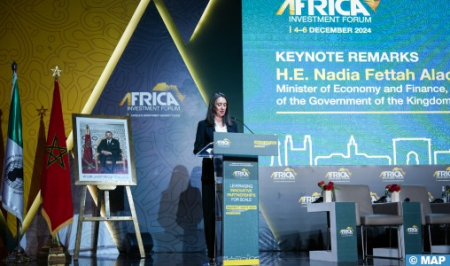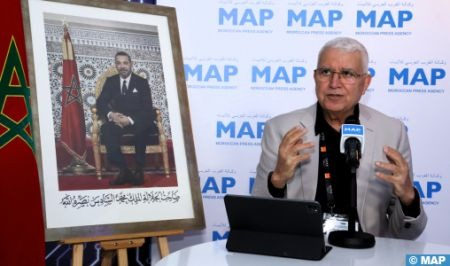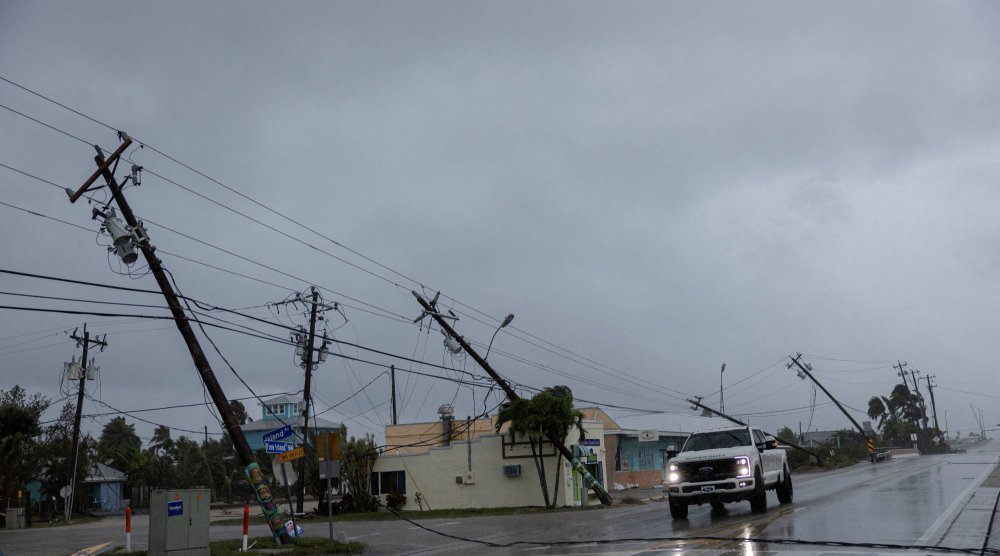Speaking at the 5th Africa Investment Forum (AIF) in Rabat, the minister emphasized the need for greater access to funding to achieve the UN’s 2030 Agenda and the African Union’s Agenda 2063.
“The much-anticipated rise of our continent relies heavily on our nations’ ability to secure the necessary financing to achieve the goals of the 2030 Sustainable Development Agenda and the African Union’s Agenda 2063,” stated the minister at the opening of the 5th Africa Investment Forum (AIF).
She underscored the importance of international financial institutions strengthening their collaboration to mobilize more private capital, complementing public resources to provide significant funding for African economies.
“While commendable efforts have been made by Multilateral Development Banks (MDBs) to attract more private capital, we must acknowledge that there is still much to be done to enable the private sector to fully play its role in bridging the financing gap for the Sustainable Development Goals (SDGs),” the minister remarked.
She called on development partners to strengthen their support for structural reforms led by African governments, with a particular focus on improving project planning and fostering the creation of well-designed, financially sustainable initiatives.
“These reforms should be accompanied by measures to consolidate macroeconomic fundamentals and improve the business environment, which would ultimately change risk perceptions and challenge historical biases against Africa, allowing the full potential of private financing to be harnessed,” the minister advocated.
She further noted that global cooperation stakeholders should collectively explore the creation of a more effective global financial safety net, enabling rapid and automatic access to liquidity while reducing investment risk premiums.
This, she said, aligns with emerging global consensus on the anticipated benefits of reforming the global financial architecture, stressing the importance of addressing the financing needs of middle-income African countries, given their critical role as sub-regional growth hubs.
“Now more than ever, development partners must enhance strategic collaboration and operate more cohesively to deliver greater impact in addressing the growing challenges facing African nations, such as rising debt risks, high youth unemployment, energy access, food insecurity, climate change, and the threat of future health crises,” she urged, emphasizing that partnership development must be central to MDBs’ long-term strategies to execute transformative projects.
Fettah underscored that the 2024 Africa Investment Forum offers a unique opportunity to “enrich our collective thinking, explore innovative solutions to persistent challenges, and strengthen the partnerships needed to achieve our aspirations,” reaffirming Morocco’s support for the AIF and all international efforts to advance Africa’s development and emergence, in line with the enlightened vision of His Majesty King Mohammed VI for a prosperous and self-reliant Africa.
The opening session was attended by Omar Kabbaj, Advisor to His Majesty King Mohammed VI and Honorary President of the African Development Bank (AfDB), Minister Nadia Fettah, and AfDB President Akinwumi Adesina.
The 2024 Africa Investment Forum (AIF), held under the theme ” Leveraging Innovative Partnerships for Scale,” positions itself as an essential platform, paving the way for strategic investments that support Africa’s economic transformation while providing direct access to transaction opportunities across the continent.
Since its inception in 2018, the AIF has generated nearly $180 billion in investment interest for major projects in energy, infrastructure, healthcare, and agriculture, cementing its status as Africa’s premier investment platform for global investors.











Comments
0